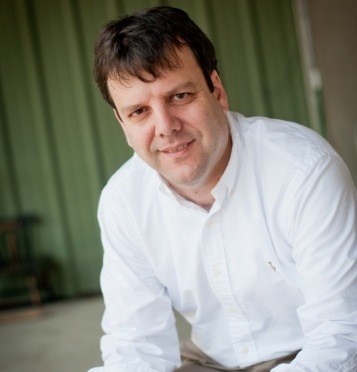Horowitz: Believing You Can Get Smarter Improves School Performance
Tuesday, November 28, 2017

The outdated notion that your IQ, determined at a young age through testing, is destiny is still too often the prism upon which students and their teachers set expectations. Embracing the more accurate and optimistic growth mindset, where initial smarts and talents are no more than a beginning enables one to view their efforts as the key to their success or failure.
A new study of California 3rd to 8th graders bolsters the case for the importance of inculcating a growth mindset in our children. Conducted by Susana Claro and Susanna Loeb and recently posted by The Brookings Institution, the study “finds that traditionally underserved students – including students in poverty, English learners, Hispanics, and African-American students – are less likely to hold a growth mindset. Yet, for all groups, students with a growth mindset learn more over the course of a year than otherwise similar students who do not have a growth mindset.”
The finding, confirmed over a number of studies, that the growth mindset for sub-groups that tend to lag in school performance, such as students that grow up in poverty, is less than for higher performing groups creates the possibility that broadly incorporating the promotion of this more expansive view of intelligence into classrooms throughout the nation could help close some of the performance gaps. As the authors of the California study wrote, “Experiments in schools have found that sessions designed to promote a growth mindset benefit academic achievement of students, especially those with initially low grades or in higher risk of failing.” When students realize that they are not destined to fail and through hard work can become more intelligent, they are understandably more motivated.
Giving every student a belief that they have the potential to succeed should be the bottom line for all of our teachers and schools. That is not only common sense; it is now backed up by persuasive evidence.
Rob Horowitz is a strategic and communications consultant who provides general consulting, public relations, direct mail services and polling for national and state issue organizations, various non-profits and elected officials and candidates. He is an Adjunct Professor of Political Science at the University of Rhode Island.
Related Articles
- Horowitz: Trump Tanks U.S. Global Image
- Horowitz: Trump’s Mishandling of Putin Meeting Worsens his Russia Problems
- Horowitz: John McCain; An Appreciation
- Horowitz: Do the Right Thing - Fix Obamacare
- Horowitz: MSNBC Gaining From Trump Presidency
- Horowitz: July 4th - Let’s Celebrate Our Free Press
- Horowitz: Trump Once Again Sends Wrong Message to American Muslim Community
- Horowitz: New CBO Score Deals Mortal Blow to House Healthcare Bill
- Horowitz: As Trump Abdicates Climate Leadership, Governors, Mayors & Business Leaders Step-up
- Horowitz: Comey - Credible and Convincing
- Horowitz: Trump Takes Us Backward on Cuba
- Horowitz: National Climate Change Report Highlights Need for Action
- Horowitz: Trump Continues Politics of Racial Division with Disgraceful Pardon of Arpaio
- Horowitz: Bush, Obama, and McCain Speak Up for American Values
- Horowitz: Trump Makes Wrong Choice on Healthcare Again
- Horowitz: Russia is No Hoax
- Horowitz: State & Local Leaders Fill Void at International Climate Conference
- Horowitz: Backsliding on Birth Control Makes No Sense
- Horowitz: Corker Sounds Alarm We Should All Heed
- Horowitz: Latinos Continue to Make Impressive Progress
- Horowitz: Trump’s Base Begins to Erode
- Horowitz: Donald, Chuck, and Nancy
- Horowitz: The False Choice - Focusing on Hurricane Victims or Climate Change
- Horowitz: The Divider in Chief Strikes Again
- Horowitz: It’s Time to Revive the “Death” Tax




Follow us on Pinterest Google + Facebook Twitter See It Read It